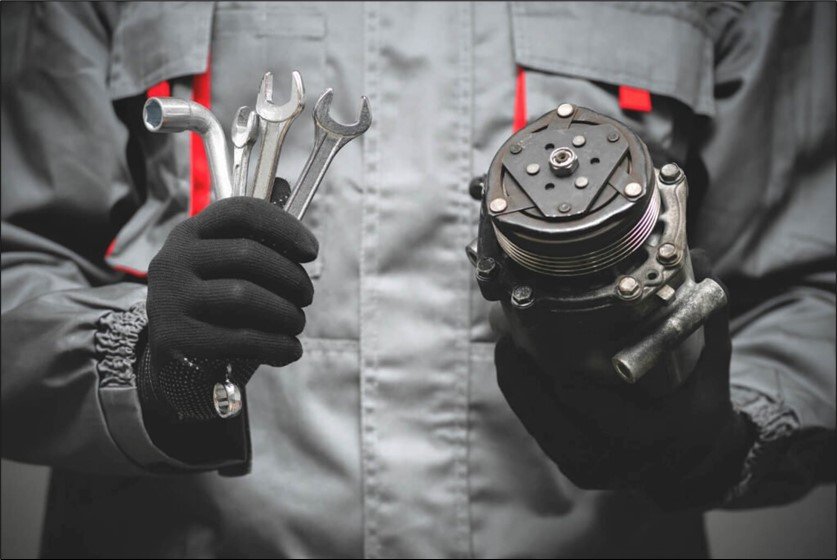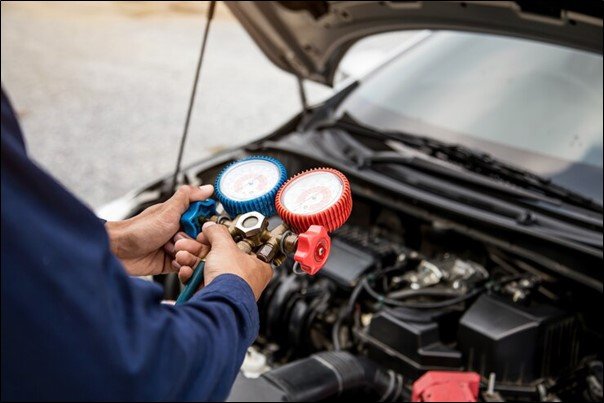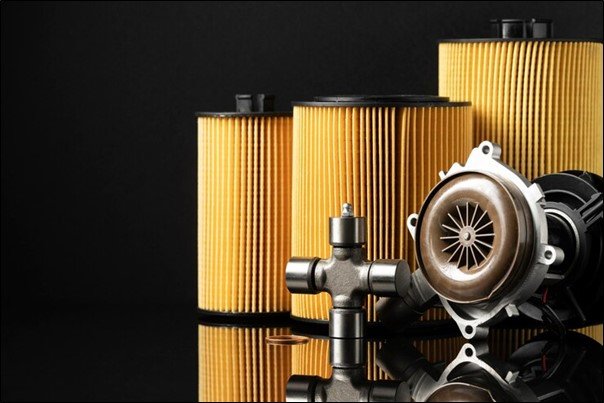A Complete Guide to Car Aircon Filter Replacement and Compressor Repairs in Singapore
- May 3, 2025

A properly functioning car air conditioning system is crucial in Singapore’s hot and humid climate. Whether you’re stuck in traffic on the expressway or navigating city streets, a reliable aircon system provides more than just comfort—it supports driver alertness and passenger well-being. Two components that often go unnoticed until they cause problems arethe car aircon filter and the car aircon compressor. Understanding how they work and knowing when they need attention can help you avoid breakdowns and extend your vehicle’s HVAC lifespan.
The Role of a Car Aircon Filter
The aircon filter, often referred to as a cabin air filter, plays a vital role in maintaining air quality inside your vehicle. It traps dust, pollen, and other airborne pollutants, preventing them from entering the cabin. Over time, this filter becomes clogged with particles, especially if you frequently drive in dusty or urban environments.
Signs Your Aircon Filter Needs Replacement
- Reduced airflow: If the air coming from the vents feels weak even at the highest setting, a blocked filter may be the cause.
- Unpleasant odours: A musty or damp smell can indicate mould buildup in a dirty filter.
- Increased cabin dust: If dust settles quickly on surfaces, the filter might not be doing its job effectively.
- Foggy windows: A clogged filter can affect the system’s ability to regulate humidity, leading to persistent window fogging.
Regular aircon filter replacement—generally once a year or every 12,000 to 15,000 km—is recommended. However, drivers in high-pollution or construction-heavy zones may need more frequent changes.
Understanding the Car Aircon Compressor

Often described as the “heart” of the air conditioning system, the car aircon compressor is responsible for compressing and circulating refrigerant throughout the AC system. It pressurises the refrigerant before it enters the condenser, starting the process that ultimately cools the air inside your car.
Common Symptoms of Compressor Problems
-
- No cooling or warm air: If your AC is blowing warm air, the compressor could be failing or completely inactive.
-
- Intermittent cooling: Cooling that comes and goes may indicate an electrical fault or mechanical issue with the compressor clutch.
-
- Noisy operation: Grinding or squealing noises while the AC is on could suggest internal compressor damage.
-
- Compressor not engaging: In some cases, the compressor clutch might not engage due to a failed relay, wiring issue, or internal fault.
Ignoring these signs can lead to a complete system breakdown, often resulting in higher repair costs. The car aircon compressor is a critical—and costly—component, so early diagnosis and repair are essential.
Causes of Compressor and Filter Issues

While normal wear and tear contribute to filter and compressor issues, other factors can accelerate deterioration:
-
- Lack of regular maintenance: Skipping routine AC service can lead to unnoticed problems escalating.
-
- Driving in harsh environments: Frequent exposure to dust, heat, or high humidity puts extra strain on the system.
-
- Overloading the system: Setting the temperature too low for extended periods can overwork the compressor, increasing the risk of failure.
-
- Refrigerant leaks: Low refrigerant levels not only affect cooling but can cause the compressor to operate inefficiently and overheat.
Preventive Measures and Best Practices
Preventing issues with your car’s AC system involves a mix of routine checks and timely servicing. Here are some steps you can take:
-
- Schedule regular AC inspections – This helps identify early signs of compressor wear or filter clogging.
-
- Replace filters proactively – Don’t wait until you notice symptoms; make it part of your annual vehicle maintenance.
-
- Monitor refrigerant levels – A drop in cooling efficiency may be linked to a refrigerant leak that stresses the compressor.
-
- Run the AC regularly – Even during cooler months, using the aircon briefly keeps the compressor lubricated and in working condition.
-
- Address smells and noise early – Unusual odours or sounds can be the first sign of underlying issues, especially in the compressor or ventilation system.
When to Seek Professional Help
While some drivers are comfortable replacing their own aircon filters, diagnosing or repairing a faulty car aircon compressor should be left to qualified technicians. Compressors are complex, pressurised components that require specialised tools and knowledge for proper repair or replacement.
In Singapore, where traffic and weather conditions place constant demand on car AC systems, regular maintenance is more than a convenience—it’s a necessity. Technicians trained in automotive HVAC systems can quickly identify whether a simple filter change is enough or if more in-depth service, such as compressor repair, is required.
Final Thoughts
Maintaining your car’s air conditioning system involves more than just turning it on and hoping for the best. By understanding the role of the car aircon compressor and the importance of timely filter replacement, drivers can enjoy consistent comfort and avoid unexpected repairs. Whether you drive daily through dense city traffic or only occasionally, keeping these components in check ensures a smoother, more comfortable ride all year round.
